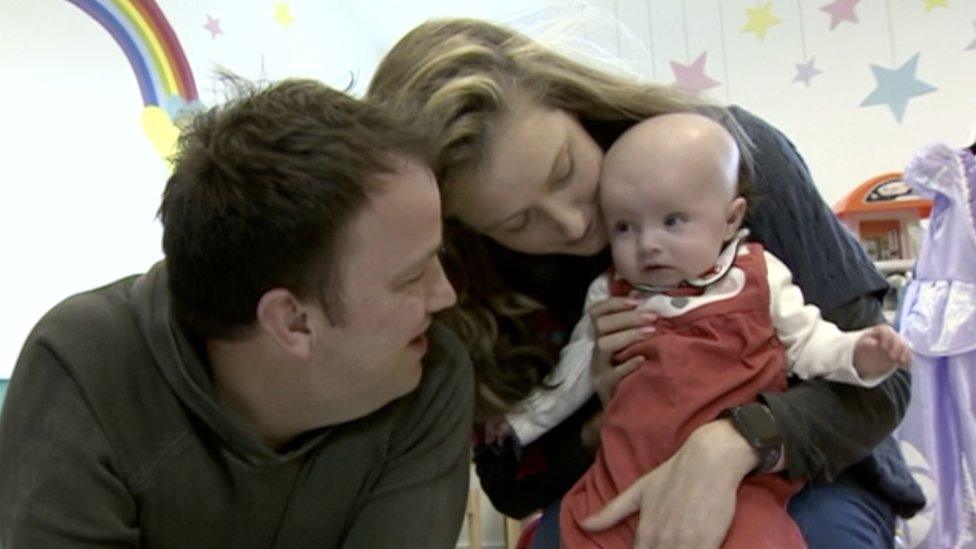Cumbria: 'Mums' group helped me deal with fears for my baby'
- Published
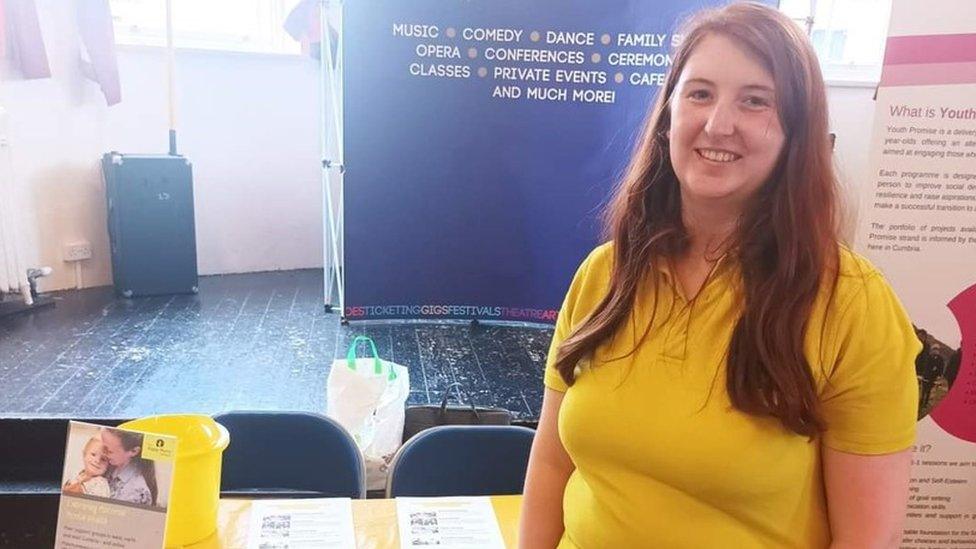
Becca Todd found talking to other mums with similar fears helped her cope with motherhood
About one in five women have mental health struggles when pregnant or after giving birth. For some the experience can be overwhelming, but there is help available. As part of a series focusing on west Cumbria, the BBC has spoken to some of those who found light at the end of the tunnel.
While pregnant with her daughter, Becca Todd had terrifying recurring nightmares that she and her baby would die.
"The most common one was of my baby slipping out of her cot and somehow getting hanged," the 25-year-old from Maryport recalls.
"Another was driving over a bridge and the car going into water and us drowning.
"Nearer Asha's birth there was also the fear of my baby being deprived of oxygen."
As Becca was expecting during the height of the Covid pandemic, she also had to contend with feelings of isolation.
Some of her fears were not unfounded, her labour was traumatic when the placenta got stuck and she had to have an epidural so it could be removed.
Although Asha was delivered safely Becca continued to struggle with anxiety and exhaustion so went to her GP.
'Time for myself'
She was given medication for depression and also referred to the First Step talking therapies service.
Becca was offered cognitive behavioural therapy and, even though Covid meant her sessions were on the phone, her feelings improved.
"I was helped to make an action plan for times when I felt I couldn't cope," she said. "I put together my 'happy box' that I could go to when I didn't feel well.
"It has chocolate and photos of Asha in it, things to boost my mood. I was advised to make time for myself which didn't involve the baby, so I took up swimming.
"I was also encouraged to write down a positive thought every day."

What is First Step?
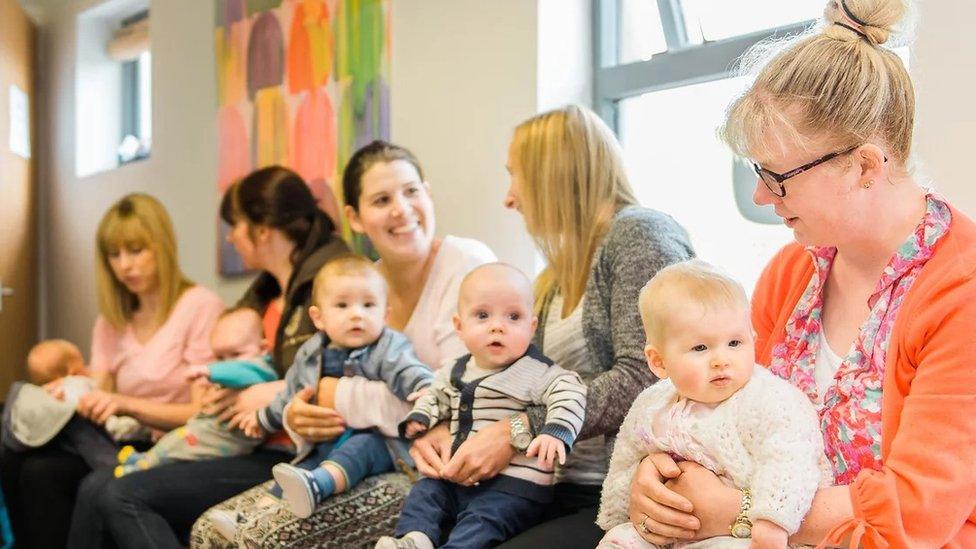
According to the NHS website for pregnant women, feeling lots of different emotions is natural
First Step is run by Cumbria, Northumberland, Tyne and Wear NHS Foundation Trust which provides mental health support across the north of England.
Clinical manager Leanne Huntley says: "About one in five women struggle with their mental health during pregnancy or after giving birth.
"It can be a really difficult time and if you are struggling, you are definitely not alone.
"New mums can get mental health support from their midwife, GP, health visitor or their local perinatal mental health team.
"We offer a range of support for new parents who are struggling with things like anxiety or depression."
The service also includes specifically tailored support, such as the "space for perinatal wellbeing" computerised cognitive behavioural therapy programme.
People can refer themselves to First Step for mental health therapy., external

Despite her struggles, Becca was determined to breastfeed Asha but found it exhausting.
"I would feed her for a few minutes then she would fall asleep," she recalled. "Then she would wake up and want to be fed again.
"I was feeling resentful, like I never got five minutes to myself to eat or have a shower."
First Step recommended Becca approach the Happy Mums Foundation which runs support groups for expectant mums and parents experiencing mental health problems.
When Asha was five months, Becca joined up and then reached a turning point.
"I realised I wasn't alone and other mums had similar stories of fears for their babies."
She continued to breastfeed successfully, but knows that many new mums struggle and feel judged if they do not manage.
"It's fine to chose what's best for you and your baby, it doesn't matter what route you take, fed is best."
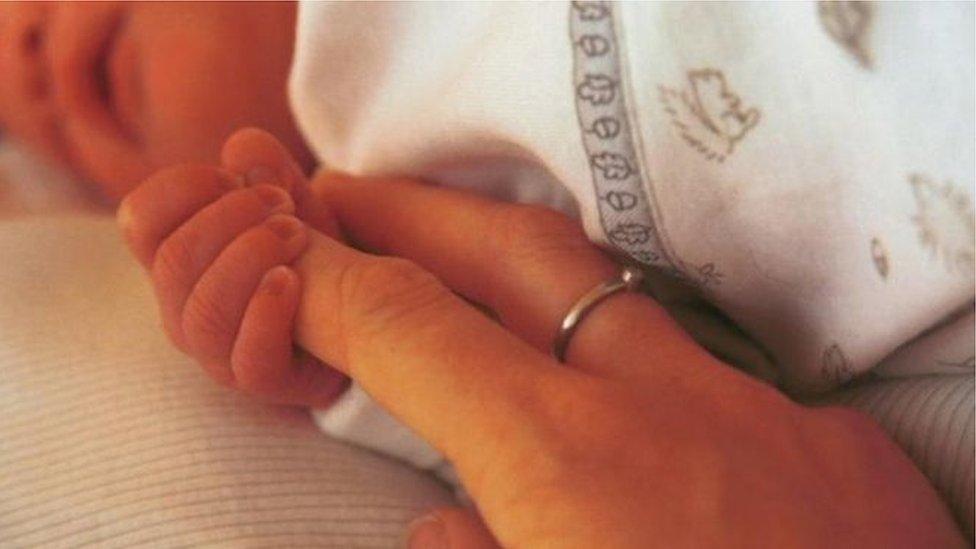
NHS talking therapies can help with issues such as depression, anxiety and obsessive compulsive disorder (OCD)
Becca began volunteering for the foundation and after two years joined the staff as a peer support coordinator.
She then helped set up a new group in Workington in January 2021.
"We are always on the look out for new people to join us and there are always biscuits," said Becca.
"There are lots of opportunities for volunteering - we have inclusion champions as well as gay and lesbian ambassadors."

Mental health tips for pregnancy
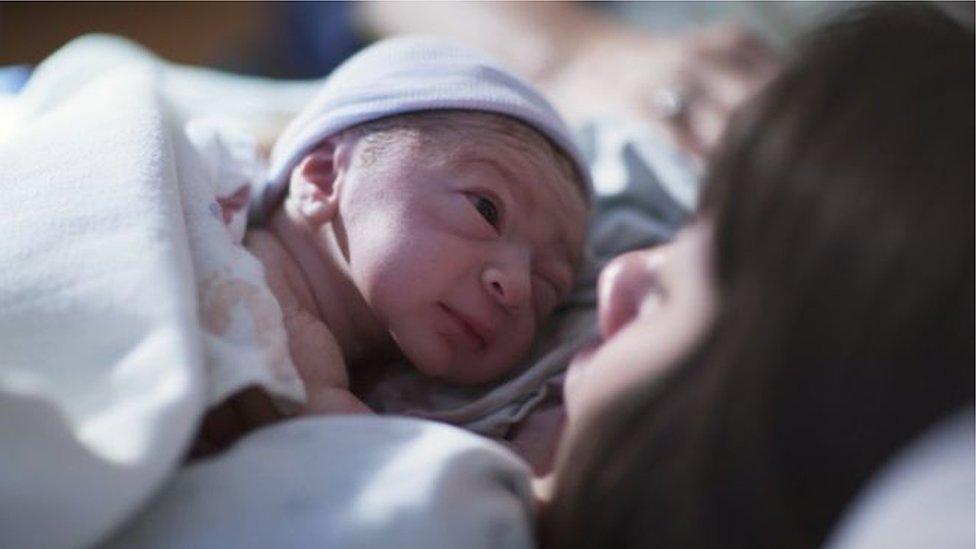
The NHS offers therapy and counselling services for issues such as depression, anxiety and obsessive compulsive disorder (OCD).
It recommends:
Talking about your feelings to a friend, family member, doctor or midwife
Try calming breathing exercises if you feel overwhelmed
Do physical activity if you can - it can improve your mood and help you sleep
Eat a healthy diet with regular meals
Try to attend antenatal classes to meet other pregnant people

Katherine Dalgliesh set up the Happy Mums Foundation in 2015 after experiencing pre and postnatal depression.
It currently offers face-to-face support sessions across Cumbria where women bring their children to share their stories and give each other moral support.
It receives grants from mainly Comic Relief and smaller funders including Francis C Scott Charitable Trust and Cumbria County Council.
Katherine says: "The experience of being pregnant, giving birth and being a mum, whether its first or tenth time, can be overwhelming.
"When you're at risk of or experiencing mental health problems at the same time it can also be lonely, confusing and scary.
"We all need a safe and supportive place to share our thoughts and feelings.
"My self-care is not always having a bubble bath or painting my nails, sometimes it's cleaning out the fridge and the sense of achievement and control I get from that."
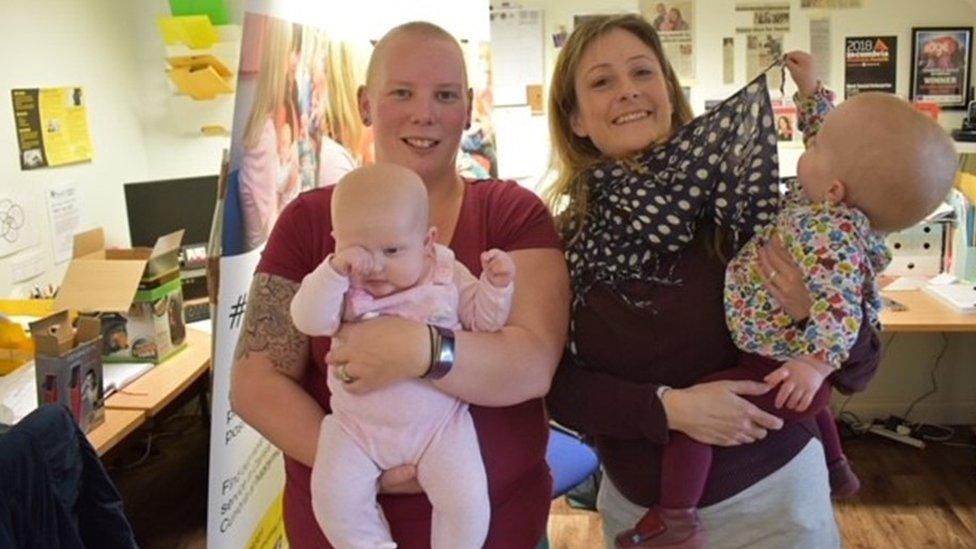
Claire Pope shaved her head to raise £5,000 for Happy Mums as thanks for "saving her life"
Claire Pope, from Brampton, had postnatal depression after having her daughter three years ago.
The 32-year-old rail project manager spent time in a mother and baby unit at a psychiatric hospital in Morpeth.
She also struggled with thoughts of suicide but found support before and after her time in hospital.
"When my daughter was born I could cope with feeding and bathing her, I just couldn't bond with her," she said.
"I was overwhelmed and things just spiralled. I was feeling like a zombie.
"I went to the mother and baby unit voluntarily. Being there for a month helped me to realise I could cope.
"I had been having thoughts like: 'She's better off without me she won't even remember me if I die.' Mums need reassurance and I got that."
Sixteen weeks ago she had her son and this time around motherhood has been completely different.
She is currently a facilitator at the Carlisle group but will soon commute to the Whitehaven support group once a week.
She said: "It will take three hours to travel there and back and for the group meeting but my son will enjoy it. He will be passed around for cuddles."

Information and support
If you or someone you know are experiencing issues with mental health or self-harm, details of help and support are available here.

Follow BBC North East & Cumbria on Twitter, external, Facebook, external and Instagram, external. Send your story ideas to northeastandcumbria@bbc.co.uk, external.
Related topics
- Published9 May 2022
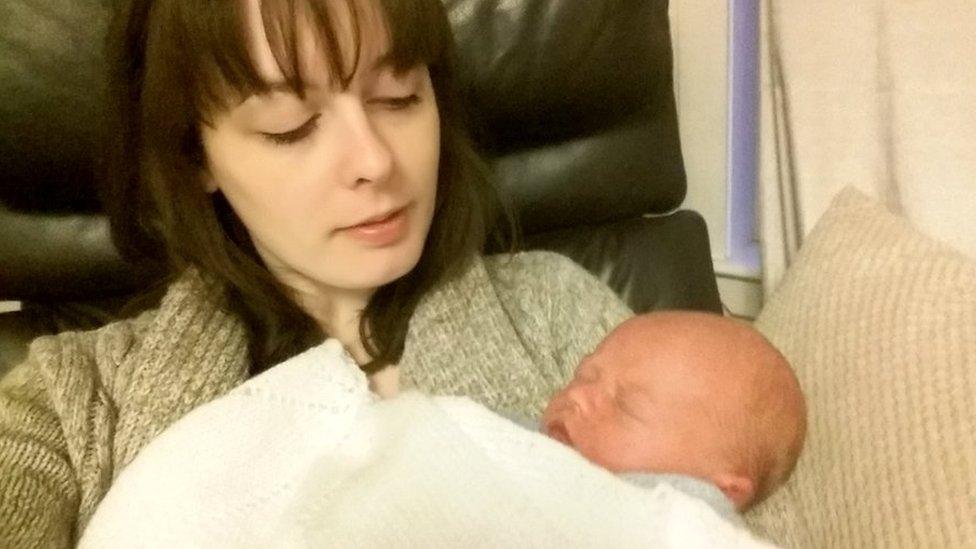
- Published6 March 2019
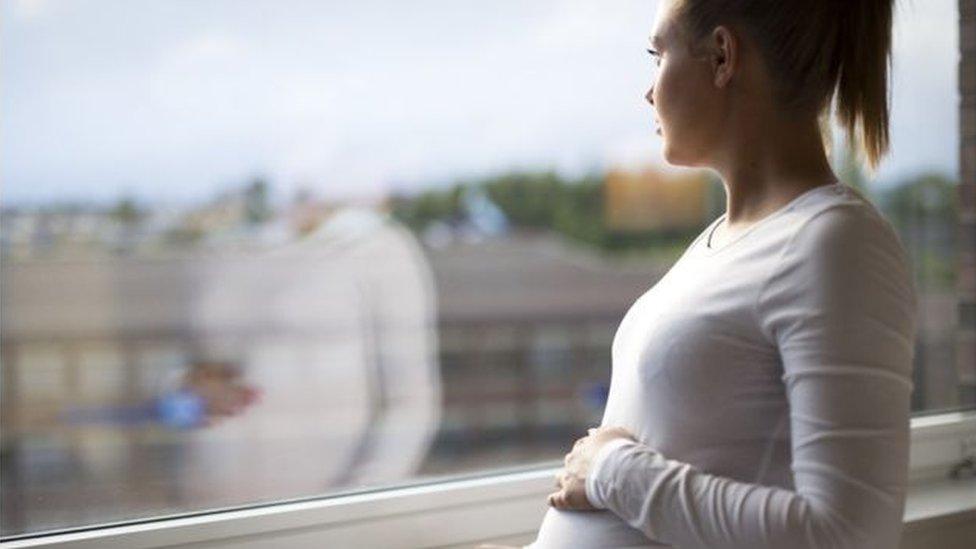
- Published15 March 2019
